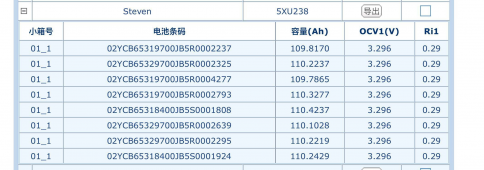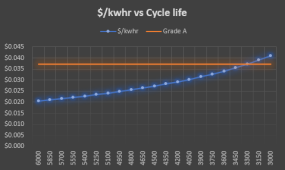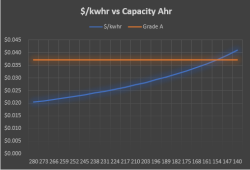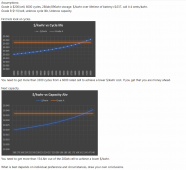Grade B or Bulk Cells.
You buy 16 cells which all work and are close in IR (Internal Resistance) "generally" @ 3.000, 3.100, 3.200 & 3.400. They test out and there is no more than 5AH capacity difference YOUR GOOD !
Buy another 16 and two have a higher IR and say 10AH differential, that pack will be limited by the lowest common denominator which will be a runner that triggers either HVD or LVD by the BMS.
To make Grade-A the cells MUST match IR at all voltage test points under Charge & Discharge within the acceptable "Working Voltage Range" which is 3.000-3.400. (
this is where the "real" AmpHours comes from) Most companies will actually do extended tests to 2.900-3.500. They do not test the "Allowable Voltage Range" which is 2.500-3.650 which is the safe margins for the cells without causing harm.
As for Battery Cell Reports, some stores do their own with whatever gear they have, is it done properly or not is unknown. Some only use handheld device like a YR1035+
https://www.aliexpress.com/item/32991434414.html? I happen to have one of these and it's fine for verifying the cells for IR. FACTORY Reports will ALWAYS Show the QR Data / Serial Number along with the test results.
My #1 Vendor is Luyuan and everyone who deals with Amy get's exactly what they order and with the EVE Factory Test Report
This RPT is from my last batch of 105AH Grade-A (sorry it's truncated)
 Luyuan Tech :
Matched & Batched A Cells are FACTORY tested @ EVE as runs through the batches produced.
Luyuan Tech :
Matched & Batched A Cells are FACTORY tested @ EVE as runs through the batches produced.
This is the TEST Report received From EVE with the full data, Translated to English where necessary for your convenience.
"OCV1" refers to the voltage of the cell (unit: V), which is the initial voltage of the cell tested by the OCV tester after eliminating the "polarization" of the finished cell;
"R1" refers to the resistance of the cell (unit: mΩ), which is the internal resistance (AC internal resistance) tested by the OCV tester after eliminating the "polarization" of the finished cell;
OCV3" refers to the voltage of the cell (unit: V), which is the initial voltage of the cell tested by the OCV tester after the finished cell sits some time at room temperature;
"R3" refers to the resistance of the cell (unit: mΩ), which is the internal resistance (AC internal resistance) tested by the OCV tester after the finished cell sits some time at room temperature







